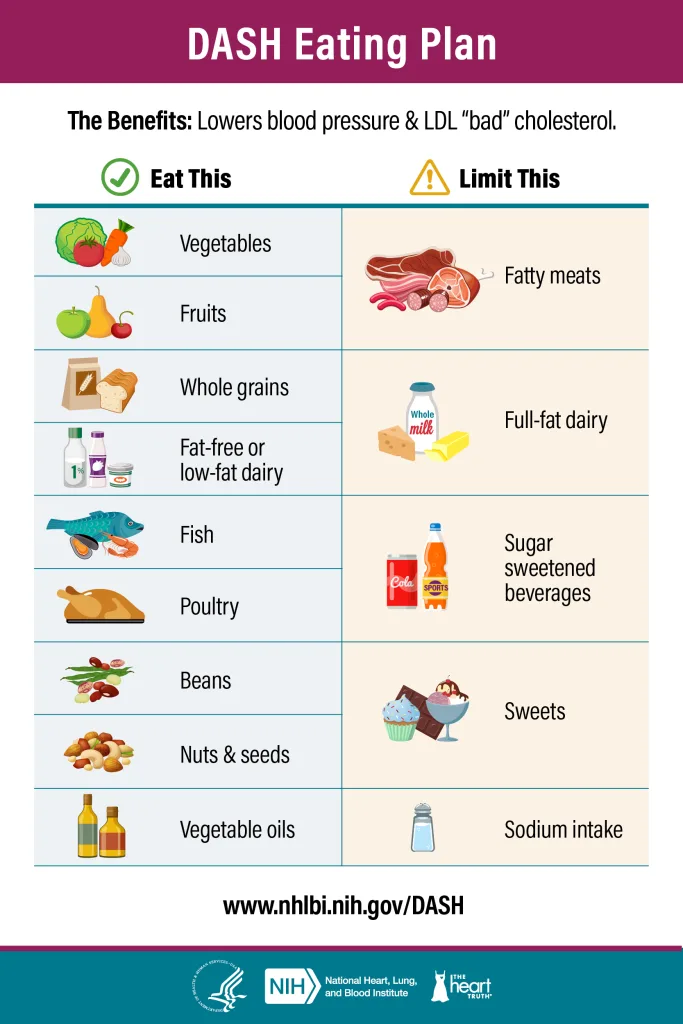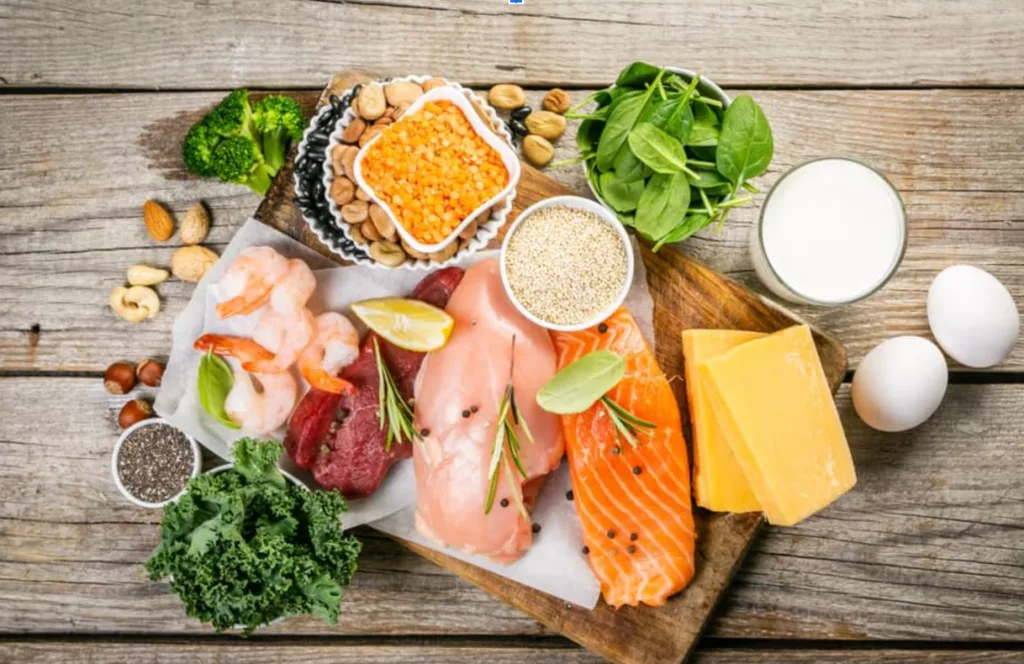Healthy Eating for Brain Health can keep your brain sharp and your memory strong. As we get older, the right foods play an important role in supporting our minds. Learn more about improving brain health through games at Brain Games for Seniors. If you have brain related illness like dementia or alzhiemer’s, check out Dementia and Alzheimer’s In Old Age: A Guide for Older Adults and New Trends in Alzheimer’s and Dementia for Older Adults.
Here’s how you can boost your brain health through diet:

Do’s >> Eat This
- Follow the Mediterranean or MIND Diet:These diets emphasize whole grains, leafy greens, berries, nuts, olive oil, and fatty fish, which are associated with a reduced risk of Alzheimer’s. (Source: ADJ 2015)
- Do Include omega-3: Incorporate sources like olive oil, avocados, nuts, seeds, and fatty fish rich in omega-3s. Examples: Salmon, mackerel, walnuts, flaxseeds, and chia seeds.
- Do Antioxidant-Rich Foods: Blueberries, strawberries, and dark chocolate contain flavonoids that combat oxidative stress, a factor in Alzheimer’s progression. (Source: Annals of Neurology, 2019)
- Do Stay Hydrated: Drink plenty of water for optimal circulation.
- Incorporate Vitamin E and B: Foods like almonds, spinach, and fortified cereals contain Vitamin E, Whole grains, eggs, and meat provide B vitamins, which are linked to lower homocysteine levels (a risk factor for Alzheimer’s).
- .Spice It Up with Turmeric: Curcumin, found in turmeric, may reduce amyloid plaque accumulation in the brain. (Source: JAD 2018)
Don’ts >> Limit This
- Minimize Added Sugars: Found in soft drinks, candies, and desserts. High-sugar diets are linked to insulin resistance in the brain, contributing to Alzheimer’s risk
- Limit Alcohol Consumption: excessive alcohol intake accelerates cognitive decline.
- Limit Trans Fats: Found in processed and fried foods. Examples: Packaged snacks, margarine, and fried fast food.
- Limit Saturated Fats: Reduce intake of fatty meats, butter, and high-fat dairy.
- Cut Back on Sodium: Avoid overly salty processed foods and snacks.
- Stay Away from Artificial Sweeteners: negatively impact brain health

1. Healthy Fats for a Healthy Brain
Your brain thrives on healthy fats. These fats protect brain cells and keep them functioning at their best.
Monounsaturated Fats: Add olive oil, avocados, and almonds to your meals. These fats improve blood flow to the brain, which helps with memory and focus.
Omega-3 Fatty Acids: Eat fatty fish like salmon, mackerel, or sardines twice a week. If you don’t eat fish, go for walnuts or flaxseeds. These fats improve memory and may reduce the risk of mental decline.
Tip: Include fish in your meals at least twice a week to get the brain-boosting benefits.
2. Vitamins and Antioxidants for Brain Health
Vitamins and antioxidants protect your brain from damage and improve your memory.
- Vitamin E: Snack on sunflower seeds, almonds, or spinach. Vitamin E helps protect brain cells and may reduce the risk of cognitive decline.
- B Vitamins: These vitamins are crucial for brain health. You’ll find them in leafy greens, eggs, and whole grains. They help keep your memory strong.
- Antioxidants: Enjoy blueberries, strawberries, and green tea to protect your brain from aging and improve your cognitive function.
Tip: Start your day with a handful of berries or add them to your yogurt to protect your brain.
3. Eating Regularly to Keep Your Brain Energized
Your brain needs constant energy to stay sharp. Eating regular, balanced meals will help you stay focused and clear-minded.
- Complex Carbs: Choose whole grains like brown rice, oats, and quinoa for steady energy that fuels your brain.
- Protein: Add eggs, chicken, or beans to your meals. Protein gives your brain the building blocks it needs to work properly.
Tip: Don’t skip meals! Healthy snacks like nuts or yogurt between meals can keep your energy up and your brain focused.
4. Avoiding Unhealthy Foods
Some foods can harm your brain over time. Limit these to protect your memory and focus.
- Sugar: Too much sugar can cause energy crashes and slow down your brain. Avoid sodas, candies, and processed snacks.
- Processed Foods: Foods with unhealthy fats, like fried foods and fast food, can hurt your brain’s health in the long run.
Tip: Choose whole foods like vegetables, fruits, and lean meats instead of processed foods.
5. Herbs and Spices for Brain Health
Certain herbs and spices can boost your brain’s performance and protect memory.
- Turmeric: Add turmeric to your meals. It contains curcumin, which helps reduce inflammation and supports memory.
- Rosemary: Sprinkle some rosemary on your vegetables. It improves focus and cognitive function.
- Sage: Use sage in your cooking—it’s known to enhance memory and support brain function.
Tip: Add turmeric to soups or rosemary to roasted vegetables for a brain boost.
6. Specific Diets That Support Brain Health
Certain diets are particularly beneficial for brain health and memory.
- Mediterranean Diet: Focus on fruits, vegetables, whole grains, and healthy fats from olive oil and fish. This diet is linked to better memory and a lower risk of Alzheimer’s.
- DASH Diet: This diet emphasizes leafy greens, whole grains, and low-fat dairy to improve brain health, especially by lowering blood pressure.
- MIND Diet: A combination of the Mediterranean and DASH diets, this plan focuses on green leafy vegetables, berries, and nuts to keep your brain healthy.
Tip: Try eating Mediterranean-style meals—lots of fish, whole grains, and fruits and vegetables—for a brain-friendly diet.
More Resources on Chronic Medical Conditions:
Explore more resources on managing chronic medical conditions. Discover precision approaches for hypertension and heart health, advanced therapies for arthritis, diabetes, and cancer, and cutting-edge strategies for chronic kidney disease(CKD), COPD (Respiratory Problems). Learn about innovations addressing depression and cognitive issues like dementia and Alzheimer’s disease, and other cognitive challenges.
External Resources
- Harvard Health- Foods Linked to Better Brainpower
- Mayo Clinic: Can the MIND Diet Improve Brain Health
Conclusion
Eating the right foods can have a big impact on your brain health. Focus on healthy fats, vitamins, and antioxidants to protect your brain. Eat regular, balanced meals to keep your energy up, and limit unhealthy foods like sugar and processed snacks. Add brain-boosting herbs and spices like turmeric and rosemary to your meals, and consider following brain-friendly diets like the Mediterranean or DASH diet. By making these small changes, you’ll keep your brain sharp and healthy for years to come.
Talk with other elderly about similar problems >> Join The Conversation: Dementia and Alzheimer’s Disease for Older Adults